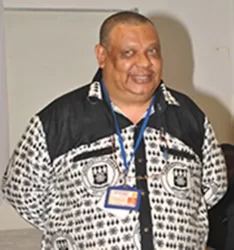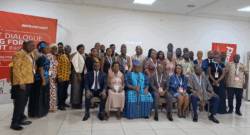By Ernest Bako WUBONTO
With merely five years to 2030, financial experts and policymakers have indicated that the ambitious goal of achieving a cashless economy by 2030 is increasingly unrealistic.
Despite significant advancements in digital payment technologies and the growing adoption of mobile wallets, numerous challenges hinder the transition to a completely cashless society.
President-Ghana FinTech and Payments Association, Martin Kwame Awagah, stressed that cash push transactions currently hold the greater proportion of trade in the country – and it will remain so for a long while as trust, education, security, infrastructure and other technological issues persist. “By 2030 we are likely to see close to an equal amount of cash usage against digital transactions, but going cashless will stretch longer into the future,” he said.
Touching on efforts and investments made toward attaining a cashless system, he said: “Despite all the strides we have made in cashless advocacy, we still lack some basic things. Almost everyone who is a heavy user of digital payment has about two to three apps or web applications for transactions, simply because of technical challenges.
“As we advance, we are hopeful that other segments of the financial services ecosystem – like insurance, lending and investment among others – will tag along; but currently, we are only seeing payments dominating. So, even though more products and services are being developed, cash is still king and its usage outweighs digital financial products.”
The fintech consultant and financial analyst further emphasised that strengthening financial technological systems, eliminating frauds and scams, building trust and enhancing cybersecurity and data protection – among other regulatory expectations -are key factors that need more attention in order to move the country to a stage where people will completely trust digital transactions as they do cash.
“The 2030 cashless economy target, while well-intentioned, overlooks the complexities of human behaviour, infrastructure gaps and societal needs. A more nuanced approach, prioritising inclusive digitalisation and a gradual phase-out of cash, is what I foresee,” he opined.
Required Collaborative Stakeholder Efforts
Key concerns that require stakeholders’ attention to drive the cashless agenda include financial inclusion innovations. Many vulnerable populations, such as the elderly and low-income households, rely heavily on cash and lack access to digital payment systems even in the face of widespread mobile money operations.
Financial inclusion requires both private sector and government working collaboratively in terms of creating favourable ecosystems and products.
Financial literacy and education – The inclusion of financial literary education in curriculums from the basic to tertiary levels is key to changing mindsets and driving home the cashless agenda.
Infrastructure limitations remain the main hindrance to the Cashlite economy. Insufficient internet penetration, inadequate digital infrastructure and unreliable payment networks hinder widespread adoption. More investment in rural IT infrastructure is key.
Also, security and privacy concerns – especially rising cybersecurity threats and data breaches which keep eroding consumers’ trust in digital payment systems – need attention. “A balanced approach will ensure a smoother transition, prioritising accessibility, security and consumer choice,” he concluded.
Nominations Open for the 2024 Ghana Fintech Awards
The Ghana Fintech Awards (GFA) has officially opened nominations for its 2024 edition, an event poised to celebrate the nation’s fintech trailblazers. The nominations are officially open and will be closed on November 25, 2024. This fourth edition is scheduled for March 1, 2025 at the Labadi Beach Hotel.
Individuals and companies are encouraged to nominate deserving candidates via the official website. GFA aims to spotlight the fintech industry by recognising and celebrating the most impactful innovators who are accelerating Ghana’s economic growth and financial inclusion.
In her remarks at the launch, Cristina Swan-Awagah – Project Coordinator for the Ghana Fintech Awards – highlighted that the awards, among other things, will accelerate Ghana’s journey toward economic growth and financial inclusion by providing a platform for the best brains in the industry to share ideas and expertise.
She maintained that fintechs are essential to promoting financial accessibility and digital adoption in the country.










